Mitsubishi ASX vs Suzuki Jimny - Differences and prices compared
Compare performance (158 HP vs 102 HP), boot space and price (21400 £ vs 25300 £ ) at a glance. Find out which car is the better choice for you – Mitsubishi ASX or Suzuki Jimny?
Costs and Efficiency:
When it comes to price and running costs, the biggest differences usually appear. This is often where you see which car fits your budget better in the long run.
Mitsubishi ASX has a somewhat advantage in terms of price – it starts at 21400 £ , while the Suzuki Jimny costs 25300 £ . That’s a price difference of around 3857 £.
Fuel consumption also shows a difference: Mitsubishi ASX manages with 4.40 L and is therefore convincingly more efficient than the Suzuki Jimny with 7.70 L. The difference is about 3.30 L per 100 km.
Engine and Performance:
Power, torque and acceleration say a lot about how a car feels on the road. This is where you see which model delivers more driving dynamics.
When it comes to engine power, the Mitsubishi ASX has a noticeable edge – offering 158 HP compared to 102 HP. That’s roughly 56 HP more horsepower.
In acceleration from 0 to 100 km/h, the Mitsubishi ASX is significantly quicker – completing the sprint in 8.90 s, while the Suzuki Jimny takes 12.80 s. That’s about 3.90 s faster.
In terms of top speed, the Mitsubishi ASX performs somewhat better – reaching 180 km/h, while the Suzuki Jimny tops out at 145 km/h. The difference is around 35 km/h.
There’s also a difference in torque: Mitsubishi ASX pulls convincingly stronger with 245 Nm compared to 130 Nm. That’s about 115 Nm difference.
Space and Everyday Use:
Beyond pure performance, interior space and usability matter most in daily life. This is where you see which car is more practical and versatile.
Seats: Mitsubishi ASX offers clearly more seating capacity – 5 vs 2.
In curb weight, Suzuki Jimny is to a small extent lighter – 1165 kg compared to 1296 kg. The difference is around 131 kg.
In maximum load capacity, the Mitsubishi ASX performs significantly better – up to 1458 L, which is about 595 L more than the Suzuki Jimny.
When it comes to payload, Mitsubishi ASX evident takes the win – 445 kg compared to 270 kg. That’s a difference of about 175 kg.
Who wins the race in the data check?
The Mitsubishi ASX sits well ahead of its rival in the objective data comparison.
This result only shows which model scores more points on paper – not which of the two cars feels right for you.
Costs and Consumption
View detailed analysis
Engine and Performance
View detailed analysis
Dimensions and Body
View detailed analysis
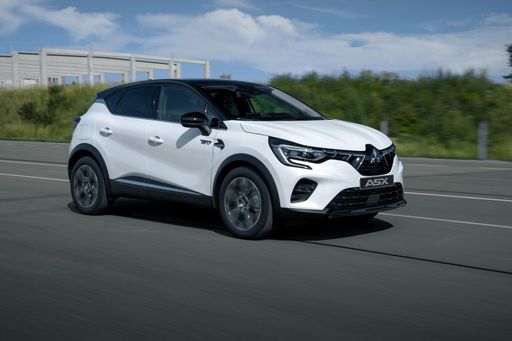
Mitsubishi ASX
Mitsubishi ASX
The Mitsubishi ASX is a compact crossover that mixes practicality with a no-nonsense personality, making it an easy choice for buyers who want sensible space without the showroom theatrics. It won't set your pulse racing, but its composed ride and user-friendly kit make it a dependable companion for daily errands and weekend escapes — reliable rather than flashy.
details
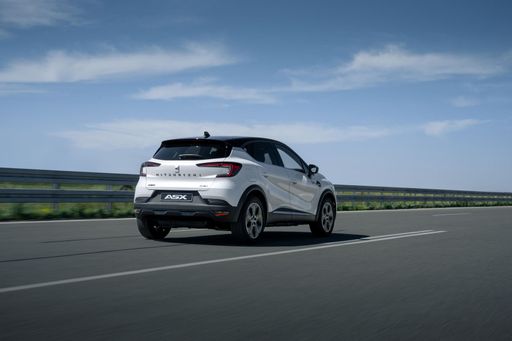

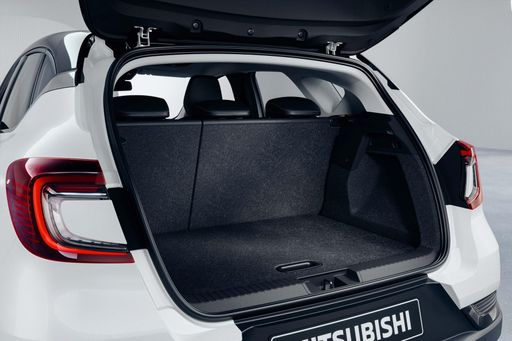
Suzuki Jimny
Brimming with raucous charm and unabashed off-road spirit, the Suzuki Jimny makes light work of rough tracks while remaining surprisingly at home in city streets. It's a cheeky, no-nonsense companion for buyers who prefer character over conformity — think go-anywhere attitude in a pocket-sized package.
details
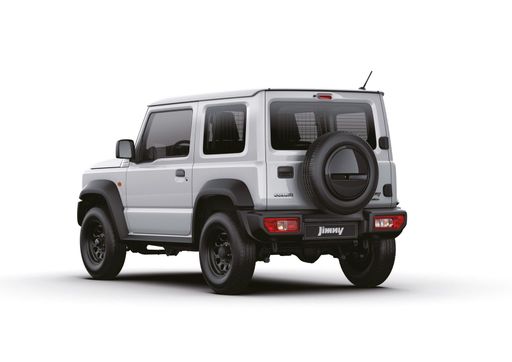
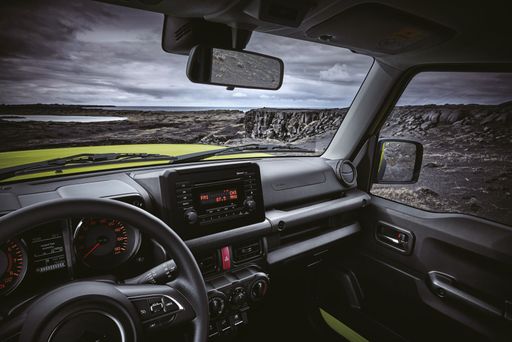

Costs and Consumption |
|
|---|---|
|
Price
21400 - 32500 £
|
Price
25300 - 27700 £
|
|
Consumption L/100km
4.4 - 6 L
|
Consumption L/100km
7.70 L
|
|
Consumption kWh/100km
-
|
Consumption kWh/100km
-
|
|
Electric Range
-
|
Electric Range
-
|
|
Battery Capacity
-
|
Battery Capacity
-
|
|
co2
99 - 137 g/km
|
co2
173 g/km
|
|
Fuel tank capacity
48 L
|
Fuel tank capacity
40 L
|
Dimensions and Body |
|
|---|---|
|
Body Type
SUV
|
Body Type
Off-Roader
|
|
Seats
5
|
Seats
2
|
|
Doors
5
|
Doors
3
|
|
Curb weight
1296 - 1493 kg
|
Curb weight
1165 kg
|
|
Trunk capacity
348 - 484 L
|
Trunk capacity
-
|
|
Length
4239 mm
|
Length
3645 mm
|
|
Width
1797 mm
|
Width
1645 mm
|
|
Height
1575 mm
|
Height
1705 mm
|
|
Max trunk capacity
1458 L
|
Max trunk capacity
863 L
|
|
Payload
397 - 445 kg
|
Payload
270 kg
|
Engine and Performance |
|
|---|---|
|
Engine Type
Full Hybrid, Petrol, Petrol MHEV
|
Engine Type
Petrol
|
|
Transmission
Automatic, Manuel
|
Transmission
Manuel
|
|
Transmission Detail
Automatic Gearbox, Manual Gearbox, Dual-Clutch Automatic
|
Transmission Detail
Manual Gearbox
|
|
Drive Type
Front-Wheel Drive
|
Drive Type
All-Wheel Drive
|
|
Power HP
115 - 158 HP
|
Power HP
102 HP
|
|
Acceleration 0-100km/h
8.9 - 12.3 s
|
Acceleration 0-100km/h
12.80 s
|
|
Max Speed
180 km/h
|
Max Speed
145 km/h
|
|
Torque
190 - 245 Nm
|
Torque
130 Nm
|
|
Number of Cylinders
3 - 4
|
Number of Cylinders
4
|
|
Power kW
84 - 116 kW
|
Power kW
75 kW
|
|
Engine capacity
1199 - 1789 cm3
|
Engine capacity
1462 cm3
|
General |
|
|---|---|
|
Model Year
2025
|
Model Year
2021 - 2024
|
|
CO2 Efficiency Class
C, D, E
|
CO2 Efficiency Class
F
|
|
Brand
Mitsubishi
|
Brand
Suzuki
|
What drive types are available for the Mitsubishi ASX?
Available configurations include Front-Wheel Drive.
